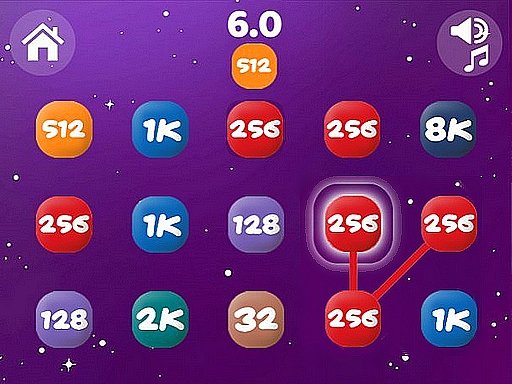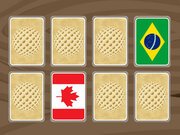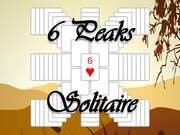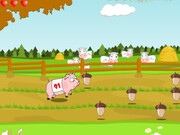
Number Merge Game Online - Play Fun Kids Brain Puzzle Games
Ready to put your brain to the test? Number Merge is an addictive challenge where your goal is to connect numbered points and create the longest lines possible without running out of moves. The more numbers you connect, the higher your score climbs, so strategy is key to mastering each level. With each line you draw, you'll need to think ahead to maximize your points and avoid getting stuck. It's a perfect mix of logic and fun that will keep you coming back for more. Ready to merge those numbers and rack up the highest score? Let's see what you've got!
12,769 play times
How to Play Number Merge Game
Use your mouse or touch the screen. As you connect the same numbers, they add up to multiples of 2. Ready, connect, set and get a high score!
What does it mean to Merge
It means to combine or cause to combine to form a single entity. In this free online game you combine 3 objects to one. As verb merge could also mean to to blend or cause to blend. The word was first recorded around 1630-40, and the origin of merge is from the Latin word mergere to dip, immerse, plunge into water.
Kids and Arithmetic - Solving Number Problems
Children in trouble with arithmetic cannot seem to remember math problems even though they review them over and over again. Before and after games, with numbers, are helpful for math understanding. Also a good way to learn arithmetic is to use numbers in practical ways around the house. The arithmetic children use in school, that is, number problems on a page, are really a formalization of all kinds of experiences dealing with measurements, time, and space. Children who are performing poorly in math at school do not need drilling at home of specific problems. If they are to develop the foundations for competency in math, they need multiple experiences that allow them to reason with numbers in their activities of daily living. These activities will allow them, in turn, to develop the generalizations necessary for handling the formal arithmetic they encounter at school. Enjoyable, fun experiences will go further toward helping your child than a repetition of the frustration he regularly faces when confronted with formal math.







